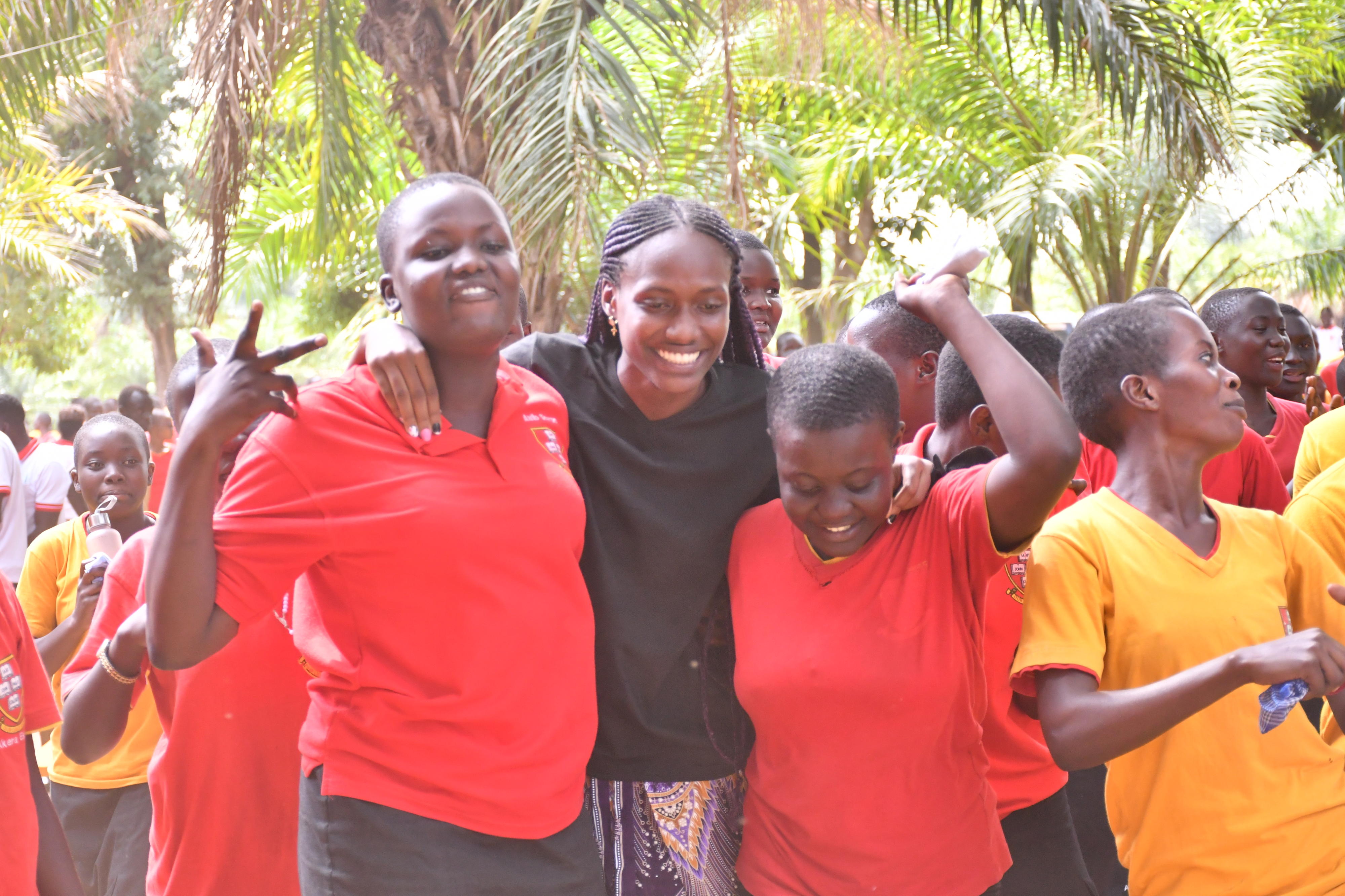Prime
67,800 students qualify for varsity

Students of Pope John Paul II College, Laliya in Gulu City celebrate with Samantha Aber (centre) after she scored 20 points at the same school. PHOTO/TEDDY DOKOTHO
What you need to know:
- At least 28,742 candidates do not qualify to join university after failing to obtain at least the two principal passes required for one to be admitted at this level.
Students who sat for the 2022 Uganda Advanced Certificate of Education (UACE) examinations have performed slightly better than their counterparts who sat for similar examinations in 2020, with female students beating their male counterparts.
Science subjects, however, continue to be a problem among the students, with the majority failing to attain two principal passes, especially in biology.
More than 28,000 students are also unlikely to join universities after failing to attain the two principal passes required before one is admitted.
While releasing the 2022 UACE results at the Office of the President yesterday, the Uganda National Examinations Board (Uneb) executive director, Mr Daniel Odongo, said a total of 97,890 candidates registered for the examinations, but 96,557 turned up.
Mr Odongo said a very high percentage of candidates; 95,787 (99.2 percent) qualified for the award of the UACE, just as was in 2020.
However, not all of them can join university.
Mr Odongo said at the minimum, two principal passes are required for university admission. Accordingly, 67,815 (70.3 percent) qualify to join universities. This is compared to 69.8 percent in 2020.
“In terms of numbers, this is slightly less than that of 2020, which was 68,013 candidates (69.8 percent), but this is consistent with the fact that there was a slight drop in entries for the examination in 2022,” Mr Odongo explained.
This means 28,742 candidates who sat for the 2022 UACE examinations do not qualify to join university, after failing to obtain at least the two principal passes required for one to be admitted at this level.
Mr Odongo said in cases where one principal and two subsidiary passes are considered for admission to other tertiary institutions, 89.3 percent of the candidates qualify.
Meanwhile, Mr Odongo noted that some students scored zero in all subjects, with one candidate opting to write songs by popular musicians on the paper.
“One of the candidates decided to just copy out questions several times in one of the papers, while another wrote, “Dear Mr Examiner, you are still wasting time on me when there are more serious candidates?” After writing “Now listen to my story,” he wrote a short poem starting with “I am the stone the builder refused….” He then listed names of some famous musicians and their songs.
Performance by subject
Just like two decades ago, students performed poorly in science subjects, with biology among the worst done subjects.
Uneb reported an improvement in History, Economics, Entrepreneurship Education, Geography and Art subjects.
According to the results, Mathematics and Chemistry recorded significant improvements at a pass level, while Physics had a drop at ‘A’ but remained comparable at the A-E level.
Uneb reported a drop in the performance of students in Biology, which they said dropped below the 2020 level where it had risen.
Ability of students
Generally, Mr Odongo revealed that the questions set tested the candidates’ ability to handle higher order tasks such as descriptions, explanations, analysis, and evaluation, which are expected at this level.
Mr Odongo said those candidates who scored grades A and B demonstrated high levels of knowledge of the subject matter and were able to handle tasks that required high order skills.
Their work in the practical examination papers also showed ability to correctly use apparatus, record observations in a manner reflecting the accuracy level of the instruments used, and ability to use the data generated correctly to either plot graphs, or use the values obtained to substitute in a given formula to determine the required constants.
However, Uneb reported that candidates at lower levels demonstrated adequate basic mastery of the subject matter.
Their performance was undermined by misunderstanding of questions, inability to describe, explain, interpret, and offer logical arguments or illustrations and specific examples to qualify their answers. Better answers were seen in parts of questions that are more direct. Some candidates rely on mnemonics in order to recall facts.

2022 Vs 2020
● A total of 41,974 candidates (43.5 percent) attained three principal passes compared to 41,411 (42.5 percent) in 2020
● At least 25,841 (26.8 percent) candidates attained two principal passes in 2022 compared to 26,602 (27.3 percent) in 2020.
● 18,382 (19.0 percent) attained 1 principle pass in 2022 compared to 19,015 (19.5 percent) in 2020.
● A total of 9,590 (9.9 percent) candidates obtained a subsidiary, compared to 9,616 (9.9 percent) in 2020, while 770 (0.8 percent) failed in 2022 compared to 796 who failed in 2020.




